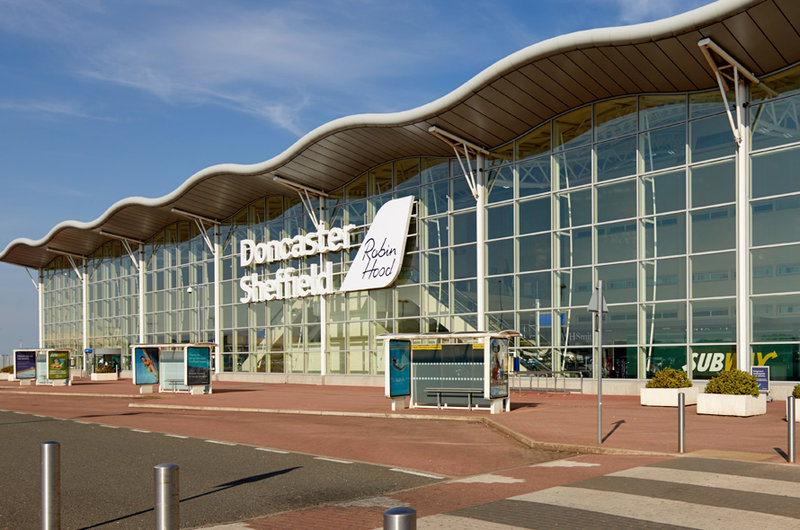Feature
Could Doncaster reinvent itself as a low-carbon aviation tech hub?
A study has pinpointed Doncaster as a potential hub for low-carbon aviation. Kirstie Pickering explores what role Doncaster Sheffield Airport could play.

Anew study has claimed that Doncaster could transform itself into a world-leading centre for low-carbon sector industries. This could mean attracting green technology businesses from across the globe, generating hundreds of new jobs and millions of pounds worth of investment in the region.
The Low Carbon Sector Feasibility Study was carried out for local authority inward investment body Business Doncaster by construction consultancy McBains and Genecon, a placemaking and economics consultancy.
It was commissioned to explore what opportunities are available thanks to the growth of low-carbon sector industries and what green technology sub-sectors provide the best economic opportunities for Doncaster.
Low carbon goals
The study found that the size and value of the low carbon sector in Doncaster currently makes up a small proportion of economic activity, accounting for less than 1% of employment in the Doncaster economy with a value of £150m per annum.
However, the report says these jobs are predominantly engaged in construction and manufacturing businesses, representing the majority of low-carbon employment nationally and are particular strengths of the wider Doncaster economy.
The study into the region follows the closure of Doncaster Sheffield Airport in November 2022. Following a review of operations, the airport’s owner Peel Group concluded that it had received no proposals that addressed the airport’s “fundamental and insufficient lack of current and prospective revenue streams; together with the airport’s high operating costs”.
"Doncaster's closure of Doncaster Sheffield airport presents a challenge, but it has the potential to reinvent itself as an aviation tech hub,” says Tassos Kougionis, ESG director at McBains.
“Ongoing discussions to retain the airspace and negotiate the airport's future demonstrate the commitment to preserving the necessary infrastructure.”
Doncaster's closure of Doncaster Sheffield airport presents a challenge, but it has the potential to reinvent itself as an aviation tech hub.
The study found that one of the most effective ways to deliver an increase in energy efficiency and reduce fuel consumption is in the reduction of the mass of an aircraft – a process known as ‘lightweighting.’
It says the proposal for the development of a lightweighting project to be based at GatewayEast, home to Doncaster Sheffield Airport – complemented by the construction of a research and development facility – will unlock potential for new products and processes for the direct application into aviation and automotive manufacturing businesses.
A recent announcement by low-carbon aviation company Hybrid Air Vehicles pointed to Doncaster as a potential home for its new Airlander 10 airship production facility, too.
“With initiatives like the Lightweighting UK project and the potential Airlander 10 production facility, Doncaster can attract investment in research and development,” adds Kougionis.
“Embracing low carbon aviation aligns with the UK's 'Jet Zero' emissions goal, offering job opportunities, new industries and sustainable air travel for Doncaster's promising future.”
What part could the airport play?
Many see the report’s ambitions as factors that the reopening of the airport could support.
Chris Dungworth, head of service at Business Doncaster, says that Doncaster Sheffield Airport was seen as a major economic driver for the Yorkshire and North Nottinghamshire region before its closure. He says its potential for growth and the attraction of new investment was enormous.
For this reason – allied to the wishes of local residents – Business Doncaster, Doncaster Council, and the South Yorkshire Mayoral Combined Authority are committed to seeing the airport re-open again.
“This would be for commercial passenger operations and cargo, but we are also looking to make this one of the greenest carbon-neutral airports in operation,” says Dungworth.
“The council are in the process of discussing a number of ways in which the airport could reopen, with a last resort of a compulsory purchase of the site being an option actively under consideration.”
Our recent low carbon studies identified areas around green aviation that a reopened airport and surrounding land would be ideal to exploit.
“Our recent low carbon studies identified areas around green aviation that a reopened airport and surrounding land would be ideal to exploit, and this is something Business Doncaster will be working on.
“We have already been approached by a number of companies who see the site as ideal for research, development and manufacture of next-generation low-carbon aircraft.”
The study makes a number of recommendations the local authority could take forward.
These include establishing a virtual Doncaster Net Zero decarbonisation hub to provide information and resources and a platform for knowledge sharing, and the development of a low-carbon business support strategy that outlines separate approaches for attracting and growing businesses.
“A green tech hub for aviation is an aspiration for the site,” concludes Dungworth. “Once the operational airport land has been secured, we hope to see this aspiration become a reality.”